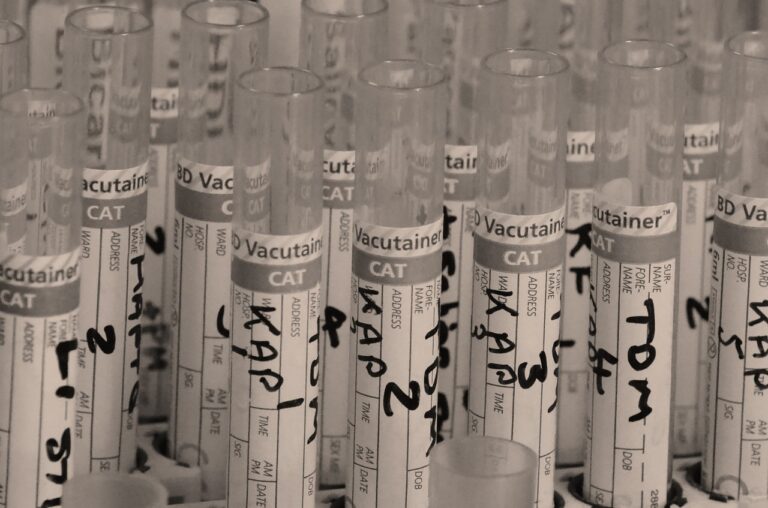Tackling Antibiotic Resistance
Antibiotic resistance is a pressing global health concern caused by the overuse and misuse of antibiotics. These life-saving drugs are becoming less effective as bacteria develop resistance to them, making infections harder to treat and increasing the risk of spread to others. Without urgent action, we could face a future where common infections become untreatable, leading to increased mortality rates and healthcare costs.
The misuse of antibiotics in healthcare, agriculture, and the environment contributes to the development of resistance. Patients often demand antibiotics for viral infections, despite their ineffectiveness, leading to unnecessary prescriptions and the emergence of resistant strains of bacteria. Similarly, antibiotics are used in large quantities in agriculture to promote growth and prevent disease in livestock, further fueling resistance. Additionally, the release of antibiotic residues into the environment through wastewater and livestock waste contaminates water sources and contributes to the spread of resistance genes.
Antibiotic resistance is a pressing global health concern caused by overuse and misuse of antibiotics.
Bacteria are becoming resistant to antibiotics, making infections harder to treat and increasing the risk of spread.
Without urgent action, common infections could become untreatable, leading to increased mortality rates and healthcare costs.
Misuse of antibiotics in healthcare, agriculture, and the environment contributes to resistance development.
Patients demanding antibiotics for viral infections leads to unnecessary prescriptions and emergence of resistant bacteria strains.
Antibiotics used in large quantities in agriculture promote growth and prevent disease in livestock, fueling resistance.
Release of antibiotic residues into the environment through wastewater contaminates water sources and spreads resistance genes.
The History of Antibiotics and Resistance
Antibiotics revolutionized medicine in the 20th century, saving countless lives by effectively treating bacterial infections. The first antibiotic, penicillin, was discovered by Alexander Fleming in 1928. This breakthrough paved the way for the development of many other classes of antibiotics, leading to significant advancements in treating various diseases.
However, the overuse and misuse of antibiotics over the years have led to the emergence of antibiotic-resistant bacteria. This resistance occurs when bacteria adapt and evolve to withstand the effects of antibiotics, making the drugs ineffective in treating infections. The history of antibiotics and resistance highlights the ongoing battle between humans and bacteria, emphasizing the importance of using antibiotics judiciously to preserve their effectiveness for future generations.
Factors Contributing to Antibiotic Resistance
Overuse and misuse of antibiotics play a significant role in the development of antibiotic resistance. When antibiotics are prescribed unnecessarily or improperly, bacteria have the opportunity to adapt and become resistant to the effects of these medications. This can occur when antibiotics are used to treat viral infections, which are not affected by antibiotics, or when individuals do not complete the full course of prescribed antibiotics, allowing the bacteria to survive and develop resistance.
In addition, the widespread use of antibiotics in agriculture has also contributed to the rise of antibiotic resistance. Animals raised for food are often given antibiotics to promote growth and prevent disease in crowded conditions. This constant exposure to antibiotics creates an environment where bacteria can develop resistance and potentially transfer those resistant traits to human pathogens. The use of antibiotics in agriculture has been identified as a significant factor in the overall increase in antibiotic-resistant infections in humans.
What is antibiotic resistance?
Antibiotic resistance occurs when bacteria develop the ability to withstand the effects of an antibiotic, making the treatment less effective.
Why is understanding the issue of antibiotic resistance important?
Understanding antibiotic resistance is crucial as it helps in developing strategies to combat this global health threat effectively.
What is the history of antibiotics and resistance?
Antibiotics were discovered in the early 20th century and revolutionized medicine by treating bacterial infections. However, overuse and misuse of antibiotics have led to the development of antibiotic-resistant bacteria.
What are the factors contributing to antibiotic resistance?
Factors contributing to antibiotic resistance include overprescription of antibiotics, improper use of antibiotics, use of antibiotics in livestock, and poor infection control practices.
How can we address antibiotic resistance?
Addressing antibiotic resistance requires a multifaceted approach including promoting responsible use of antibiotics, developing new antibiotics, improving infection control measures, and educating healthcare professionals and the public about antibiotic stewardship.







